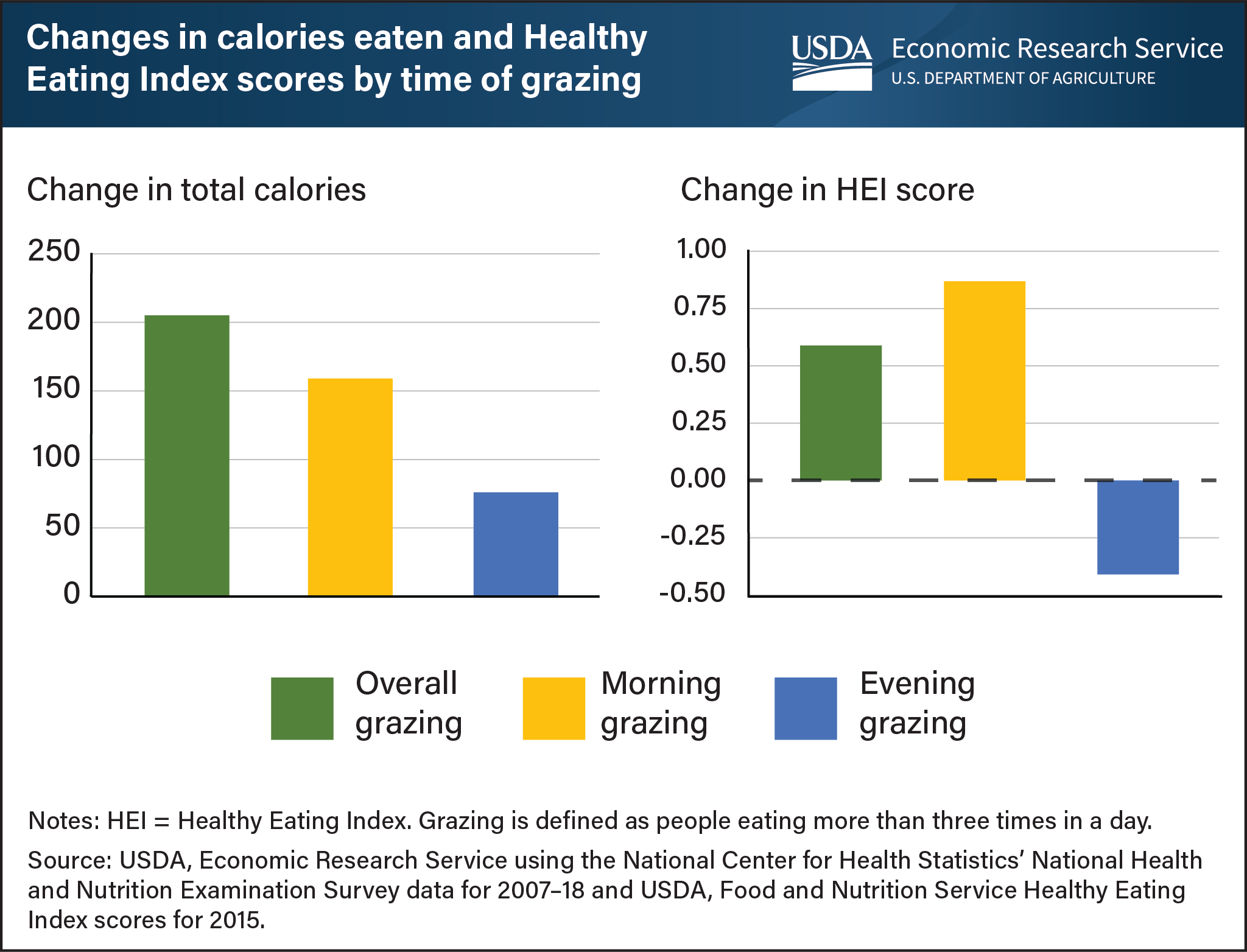Morning grazing increased people’s dietary quality, while evening grazing decreased it
- by Eliana Zeballos
- 4/25/2022

When people graze, their daily caloric intake and dietary quality may increase, but factors such as the time of day may make a difference. Recently, USDA, Economic Research Service (ERS) researchers investigated whether grazing, or eating more than three times a day, affects total daily caloric intake and dietary quality as measured by USDA’s 2015 Healthy Eating Index (HEI). The results show grazing increased total daily caloric intake by 205 calories and increased the daily HEI score by 0.59 points. The HEI gauges diet quality by measuring how well a person’s diet conforms with recommendations in the Dietary Guidelines for Americans. The maximum score is 100, and a higher score reflects better diet quality. ERS researchers used 2 days of U.S. adult food intake data from the National Health and Examination Survey (NHANES) from 2007–18. These data capture detailed information about the types and amounts of food consumed in 2 non-consecutive days, as well as when each food was eaten. Researchers observed how dietary quality differed between morning and evening grazers. Individuals were defined as morning grazers if they reported more than two eating occasions between 3 a.m. and 2:59 p.m. Compared with people who did not graze at all, morning grazers increased their total daily caloric intake by 159 calories and increased the daily HEI score by 0.87 points. Individuals were defined as evening grazers if they reported more than one eating occasion between 3 p.m. and 2:59 a.m. Compared with not grazing, evening grazing increased daily caloric intake by 76 calories and decreased the daily HEI score by 0.41 points. This chart appears in the ERS’s Amber Waves article, “Grazing Increases Daily Caloric Intake and Dietary Quality”, published March 2022.

